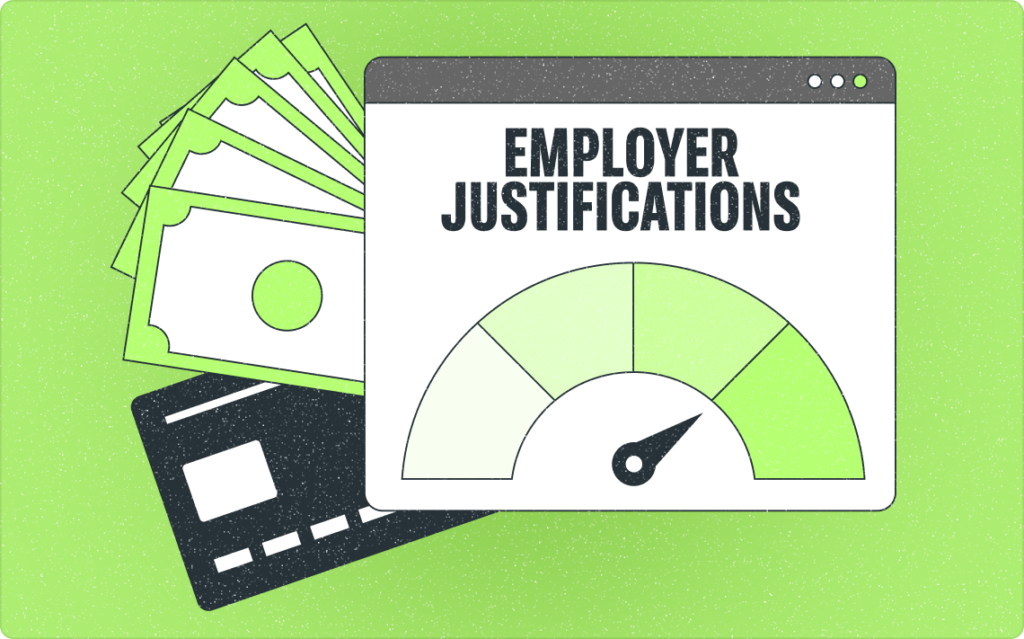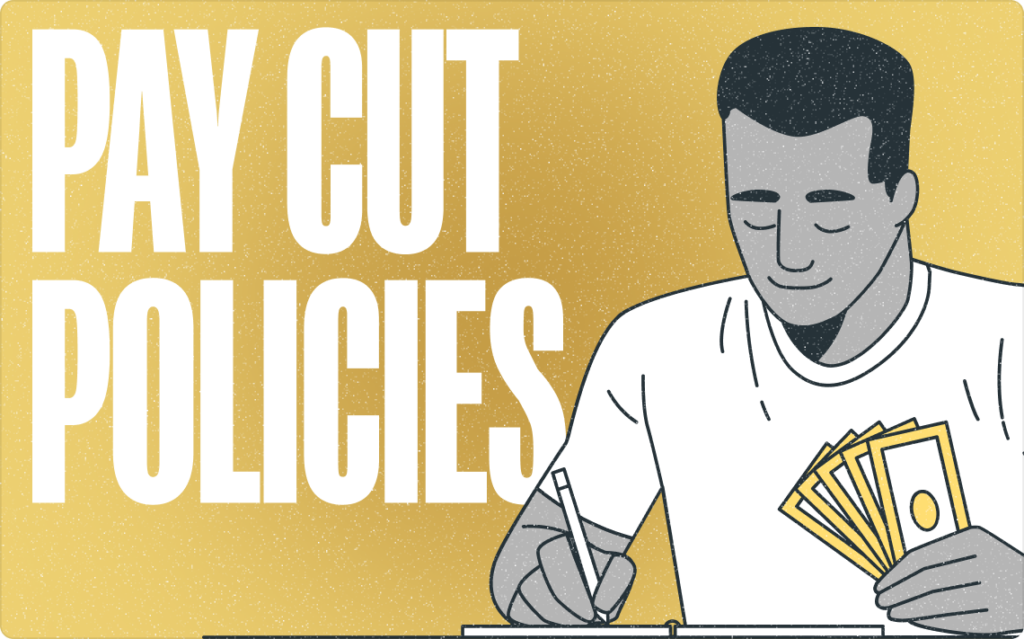Is It Legal for Your Employer to Cut YourPay? Understanding Your Rights andEmployers’ Restrictions

Understanding the Legal Grounds for Pay Reduction
Contractual Agreements and Pay
The terms of an employee’s compensation are typically outlined in a contractual agreement at the start of employment. This contract serves as a binding document between the employer and the employee, detailing the pay rate, job responsibilities, and other employment conditions.
- Fixed Salary Agreements: For salaried employees, the contract usually specifies a fixed annual amount, which can only be altered under certain conditions agreed upon by both parties.
- Hourly Wage Contracts: Hourly employees have contracts that stipulate a specific wage per hour worked, and any reduction must comply with minimum wage laws.
- Commission-Based Structures: In roles with commission-based pay, the contract may outline how pay is calculated based on performance or sales.
It’s crucial for employees to understand that any reduction in pay requires a modification of the original contract, which typically necessitates mutual consent. Without such agreement, unilateral pay cuts by the employer could be deemed illegal and may be challenged in court.
Federal and State Wage Laws
Federal and state wage laws set the legal framework within which employers can operate when it comes to employee compensation. At the federal level, the Fair Labor Standards Act (FLSA) establishes minimum wage, overtime pay eligibility, recordkeeping, and child labor standards affecting full-time and part-time workers in the private sector and in federal, state, and local governments.
State laws may provide additional protections and higher minimum wage rates than the federal baseline. Employers must comply with both federal and state regulations and apply the standard that is most beneficial to the employee. Here are some key points to consider:
- Minimum Wage: Employers cannot reduce wages below the federal or state minimum wage, whichever is higher.
- Overtime Pay: Pay cuts cannot affect the overtime rate, which is typically 1.5 times the regular pay for hours worked beyond the standard 40-hour workweek.
- Frequency of Pay: Some states have laws dictating the frequency with which employees must be paid, and pay cuts should not result in violations of these requirements.
It’s important for employees to understand these laws to ensure their pay is not being reduced unlawfully. If an employer does cut pay, they must still adhere to the legal standards set by these wage laws.
Exceptions and Special Circumstances
While the general rule is that employers must adhere to the terms of the employment contract and wage laws, there are certain exceptions and special circumstances where pay cuts may be legally permissible. These exceptions often hinge on the specific context of the employment situation and the reasons behind the pay reduction.
- Collective Bargaining Agreements: Unionized workers may have different provisions for pay adjustments as negotiated through collective bargaining. These agreements can include clauses that allow for temporary pay cuts under specific conditions.
- Sales Commissions: Employees who earn commissions may experience lawful fluctuations in pay based on sales performance, which is not considered a pay cut but rather a reflection of the pay structure.
- Exempt vs. Non-Exempt Employees: The Fair Labor Standards Act (FLSA) distinguishes between exempt and non-exempt employees. Exempt employees, often salaried and not eligible for overtime, may face salary reductions if they meet certain criteria, such as a company-wide salary reduction plan that does not discriminate and does not reduce their pay below a certain threshold.
- Voluntary Pay Cuts: In some cases, employees may voluntarily agree to a pay cut, perhaps to prevent layoffs or to help the company during a difficult financial period. Such agreements should be documented and made with full understanding of the implications.
It’s important for employees to be aware of these exceptions and to understand how they may apply to their own employment situation. Consulting with a legal professional can provide clarity on the legality of a pay reduction in these special circumstances.
Get more out of your business
Get the best employee engagement content every week via mailing list

Employee Rights and Protections Against Pay Cuts
Notification Requirements for Pay Reduction
When an employer decides to reduce an employee’s pay, there are specific notification requirements they must follow to ensure the process is legal and transparent. These requirements are designed to protect employees from sudden and unexpected changes to their compensation that could significantly impact their financial well-being.
- Advance Notice: Employers are typically required to provide employees with advance notice before implementing a pay cut. The notice period may vary depending on state laws and the terms of the employment contract.
- Written Notification: It is generally advisable for employers to issue a written notification of the pay reduction. This document should detail the reasons for the pay cut, the amount of the reduction, and the effective date.
- Acknowledgment: Employees may be asked to acknowledge receipt of the notification. This acknowledgment does not necessarily mean agreement with the pay cut but serves as proof that the employee was informed.
Understanding these notification requirements is crucial for employees to prepare for the change and, if necessary, to take steps to dispute the reduction or seek alternative employment. Employers who fail to comply with these requirements may face legal challenges and potential penalties.
Dispute Resolution and Legal Recourse
When facing a pay cut, employees have several avenues for dispute resolution and legal recourse. It’s important to understand the steps involved in challenging a pay reduction and the rights you have under the law.
- Review the Pay Cut Notification: Ensure that the notification of pay reduction complies with state and federal laws. This includes checking for adequate notice and the reasons provided for the pay cut.
- Consult Your Employment Contract: Your contract may have specific clauses about pay reductions and the conditions under which they are permissible.
- Seek Legal Advice: If you believe your pay cut is unjustified or illegal, consult with an employment lawyer to discuss your options.
- File a Complaint: If applicable, file a complaint with the relevant state or federal labor department.
- Consider Alternative Dispute Resolution (ADR): Before taking legal action, explore ADR methods such as mediation or arbitration, which can be less adversarial and costly.
Remember, it’s crucial to act promptly and keep detailed records of all communications and documents related to the pay cut. This will be invaluable if the dispute escalates to legal proceedings.
Protection from Retaliation
Employees are safeguarded against retaliation when they assert their rights concerning pay cuts. Retaliation can take many forms, including dismissal, demotion, or any adverse employment action that would dissuade a reasonable person from making a complaint about their pay. Here are key points to remember:
- Legal Shielding: Federal and state laws protect employees from retaliation by employers. For instance, the Fair Labor Standards Act (FLSA) prohibits employers from retaliating against employees who complain about violations of the law, including unlawful pay reductions.
- Reporting Mechanisms: If an employee believes they have been retaliated against, they can report the incident to the appropriate government agency, such as the U.S. Department of Labor’s Wage and Hour Division.
- Documentation: It is crucial for employees to document any instances of retaliation, including dates, times, and details of conversations or actions taken by the employer. This documentation can be vital in proving a case of retaliation.
- Seeking Recourse: Employees have the right to seek legal recourse if they experience retaliation. This may include filing a lawsuit or seeking mediation or arbitration, depending on the circumstances and the terms of the employment contract.

Employer Justifications for Reducing Employee Pay
Economic Downturns and Financial Hardship
In times of economic downturns or financial hardship, employers may find themselves in a position where reducing employee pay is considered necessary to maintain business operations. These challenging periods can lead to a decrease in revenue, prompting companies to cut costs across various departments, including labor.
- Cost-saving Measures: Pay cuts during economic struggles are often seen as an alternative to layoffs. By reducing salaries, employers aim to spread the financial burden more evenly and avoid losing valuable staff.
- Temporary Adjustments: In some cases, employers may implement temporary pay reductions with the intention of restoring wages once the financial situation improves.
- Transparent Communication: It is crucial for employers to communicate openly with their employees about the financial difficulties and the reasons behind pay cuts. This can help maintain trust and morale among the workforce.
Employees should be aware that while such measures may be legal, they are subject to specific regulations and must be handled with care to ensure compliance with employment laws and contracts.
Performance-Based Pay Adjustments
Many employers implement performance-based pay systems as a means to incentivize employees and align their compensation with the value they bring to the company. Under such systems, pay reductions can occur if an employee’s performance metrics do not meet the established standards or targets.
Key considerations in performance-based pay adjustments include:
- Clarity of Expectations: Employers must clearly define performance criteria and how they relate to pay adjustments.
- Consistency in Application: The criteria for pay adjustments should be applied consistently across all employees to avoid discrimination.
- Regular Evaluations: Performance should be assessed regularly, and employees should receive feedback to understand how their performance impacts their compensation.
Employees should be aware that while performance-based pay can offer the opportunity for increased earnings, it also carries the risk of pay cuts if performance declines. It is important for employees to understand the terms of their performance-based compensation and to engage in open dialogue with their employers about how their performance is evaluated and rewarded.
Restructuring and Organizational Changes
Employers may find themselves in situations where restructuring or organizational changes are necessary to stay competitive or respond to market pressures. These changes can have a direct impact on employee compensation structures.
- Downsizing: When a company downsizes, it may reduce its workforce, which can lead to pay cuts for remaining employees who take on additional responsibilities without commensurate pay increases.
- Mergers and Acquisitions: In the event of a merger or acquisition, job redundancies often occur, and the new entity may establish a different pay scale that could result in reduced salaries for some employees.
- Shift in Business Model: A significant shift in a company’s business model might necessitate a realignment of roles and salaries to fit the new strategic direction.
Employees affected by such changes should review their employment contracts and seek legal advice if necessary. It’s important to understand that while employers have the right to restructure, there are legal limitations to how these changes can affect employee pay and conditions.

Reviewing Your Employment Contract
Before addressing any pay cut concerns, it’s crucial to thoroughly review your employment contract. This document outlines the terms of your compensation and may contain specific clauses related to salary changes. Here are key points to consider:
- Salary Details: Confirm the salary or hourly wage rate that you agreed upon when you were hired.
- Change Clauses: Look for any provisions that allow your employer to change your pay. These might include cost-of-living adjustments, merit increases, or pay cuts under certain conditions.
- Notice Period: Identify any requirements for advance notice before a change in pay can take effect.
Understanding your contract is the first step in determining if a pay cut is permissible. If the contract does not explicitly allow for a reduction in pay or if the terms are unclear, you may have grounds to dispute the pay cut. It’s advisable to seek legal counsel or advice from a labor rights organization if you’re unsure about the interpretation of your contract terms.
Negotiating Changes to Compensation
When faced with a proposed pay cut, it’s crucial to approach the negotiation process with a clear strategy. Begin by gathering evidence of your contributions and performance to justify your current compensation. It’s also beneficial to understand the market rate for your position to argue your worth effectively.
- Prepare: Collect performance reviews, accolades, and any relevant data that demonstrate your value to the company.
- Research: Know the industry standards for your role and be prepared to discuss how your salary compares.
- Communicate: Engage in open dialogue with your employer, expressing your concerns and willingness to find a mutually beneficial solution.
- Negotiate: Be ready to discuss alternatives to a straight pay cut, such as reduced hours, flexible working arrangements, or other benefits that could compensate for the lower salary.
Remember, negotiation is a two-way street, and maintaining a professional demeanor throughout the process is key. If an agreement cannot be reached, it may be necessary to seek legal advice or explore other employment opportunities.
Understanding Severance Pay and Unemployment Benefits
When navigating the complexities of a pay cut, it’s crucial to understand the implications for severance pay and unemployment benefits. Severance pay is a form of compensation that some employers provide to employees upon termination of employment. It is not mandated by federal law but may be stipulated in your employment contract or the company’s policies.
Eligibility for unemployment benefits can be affected by a reduction in pay. Generally, if you lose your job through no fault of your own, you may qualify for unemployment benefits. However, if your hours or pay are reduced, you might still be eligible for partial benefits. The specific criteria and benefits vary by state, so it’s important to:
- Check your state’s unemployment insurance program for eligibility requirements.
- Understand how a pay cut impacts your claim, as some states allow claims for lost wages due to reduced hours.
- File a claim promptly if you are eligible, as delays can affect your benefits.
In the event of a pay cut, reviewing your employment contract and company policy is essential to determine any entitlements to severance pay. Additionally, staying informed about your rights regarding unemployment insurance will help ensure you receive any benefits you’re due.

Case Studies and Legal Precedents
Notable Lawsuits Involving Pay Reduction
Throughout the years, several high-profile lawsuits have highlighted the complexities surrounding pay reduction. These cases often set important precedents and clarify the legal boundaries for employers and employees alike.
- Adams v. XYZ Corp.: This landmark case established that significant pay cuts without proper notice can constitute a ‘constructive dismissal,’ allowing employees to seek damages.
- Brown v. National Enterprises: Here, the court ruled that pay reductions must align with existing employment contracts, and any deviations without employee consent could be deemed unlawful.
- Clarkson v. EcoTech Inc.: In this instance, the court decided that salary reductions based on discriminatory practices were in violation of equal employment opportunity laws.
These cases serve as critical references for both employers considering pay reductions and employees facing potential salary cuts. They underscore the importance of adhering to legal standards and the consequences of failing to do so.
Impact of Legal Decisions on Employment Practices
Legal decisions play a pivotal role in shaping the landscape of employment practices, particularly concerning pay cuts. When courts rule on disputes involving wage reductions, their decisions often set precedents that influence how employers approach pay policies. For instance:
- Precedent-Setting Cases: High-profile cases can lead to widespread changes in employer policies to ensure compliance with legal standards.
- Guidance for Future Disputes: Legal decisions provide a framework for both employers and employees to understand the boundaries of lawful pay reductions.
- Policy Revisions: Employers may revise their pay practices to avoid litigation, aligning with the legal interpretations established by the courts.
Employers must stay informed about relevant legal decisions to avoid potential legal challenges. These decisions can also empower employees by clarifying their rights, enabling them to advocate effectively for fair compensation. Ultimately, the impact of legal decisions extends beyond the parties involved in the case, affecting the employment practices of companies nationwide.
Lessons Learned from Past Cases
The examination of past legal cases involving pay reductions provides invaluable insights for both employers and employees. Key takeaways include the importance of clear communication and documentation when altering compensation structures. Employers are reminded of the necessity to adhere strictly to contractual obligations and labor laws, while employees gain a better understanding of their rights and the mechanisms available for recourse.
- Transparency: Ensuring that all changes to pay are communicated transparently can prevent misunderstandings and disputes.
- Preparation: Employers should prepare for potential legal challenges by keeping detailed records of the reasons and methods for pay cuts.
- Awareness: Employees should stay informed about their rights and the legal standards that protect them, including minimum wage laws and anti-retaliation statutes.
These cases also highlight the role of negotiation and the potential for mutually beneficial agreements when both parties are willing to engage in open dialogue. Ultimately, the precedents set by these cases serve as a guide for future disputes, emphasizing the need for fairness and legal compliance in the realm of employee compensation.
Conclusion
In conclusion, the legality of an employer reducing an employee’s pay is a complex issue that hinges on various factors, including employment contracts, state and federal laws, and the specific circumstances surrounding the pay cut. While employers do have some leeway to adjust wages, they must adhere to legal requirements such as providing adequate notice and ensuring that the reduction does not discriminate or violate wage and hour laws. Employees should be aware of their rights and seek legal advice if they believe their pay has been unfairly or illegally reduced. Understanding both the rights of the worker and the restrictions on employers is crucial in navigating these situations and ensuring fair labor practices.
Frequently Asked Questions
What are the notification requirements for pay reduction?
Employers are typically required to notify employees of a pay reduction before it takes effect. The specific requirements can vary by state, but advance notice is generally required to give the employee time to prepare for the change in income.
Are there any exceptions to the legal grounds for pay reduction?
Yes, there are exceptions such as when pay reductions are part of a collective bargaining agreement, or in response to economic emergencies declared by the government. Additionally, pay cuts related to performance-based pay adjustments may also be an exception, depending on the terms of the employment contract.
How can employees dispute a pay reduction?
Employees can dispute a pay reduction by first discussing the matter with their employer or HR department. If the issue is not resolved, they may need to file a complaint with the state labor department or seek legal counsel to determine if the pay cut was unlawful.
What protections do employees have from retaliation after disputing a pay cut?
Employees are protected from retaliation by various federal and state laws. If an employee is retaliated against for lawfully disputing a pay cut, they may have grounds for a legal claim against the employer.
Can a pay cut affect my eligibility for unemployment benefits or severance pay?
A significant pay cut may affect your eligibility for unemployment benefits, as it could be considered constructive dismissal in some jurisdictions. Severance pay, on the other hand, is typically based on the terms of your employment contract or company policy.


